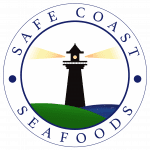Currently, the world is seeing a global interest in aquaculture. As one of the most efficient forms of protein production, aquaculture is spearheading the future of sustainable nutrition. Shellfish in particular have long been the poster child of aquaculture due to their desirability, efficiency and safety.
In order to sell shellfish for human consumption in the United States, they must be reared in water that satisfies stringent quality requirements. Furthermore, bivalves are lower on the food chain and often contain undetectable mercury and other harmful metals than predatory species.
Safe Coast Seafoods, the wholesale fresh fish supplier in San Francisco, is invested in advocating for the inclusion of these bivalves in your product catalog because they are one of the most safe, sustainble and ethical seafood options.
What Are Bivalves
A type of aquatic mollusk, bivalves are a meaty, edible muscle, rich in both flavor and omega-3 fatty acids. Bivalves have a compressed body within a hinged shell divided into left and right valves from the front to the back. Clams, mussels, and oysters are bivalves that belong to the same mollusk family. Because of their evolutionary simplicity, they stand out from other mollusks like the octopus. For example, they do not need to search for food because they filter nutrients from the surrounding water.
Why Bivalves Are a Sustainable Seafood
Nearly one billion individuals in the most vulnerable communities have their nutritional needs met by this natural source of protein, rich in vital nutrients. Additionally, it offers a plethora of societal and environmental benefits. Here’s what makes them an ethical dietary choice:
They Don’t require feeding
Bivalves filter nutrients from the water for food, cleaning anywhere between 30 and 50 liters of water daily. They also actively sequester carbon as well which deacidifies the ocean and fights climate change. This enhances nearby marine habitats and beautifies the ocean.
Farmed shrimp and finfish require the consumption of other smaller fish to develop. This “fishmeal” is made from krill, anchovies, and sardines and is cheaply imported from underdeveloped countries. The production and use of fishmeal adversely affects local communities that would typically consume these fish directly. Seabirds, marine mammals, and larger finfish that compete with aquaculture for their food supply are also affected.
Since bivalves self-nourish, they don’t require the production of feed. What’s more, they don’t require antibiotics or agrochemicals to grow. This translates to resource and cost savings for both producers and consumers.
Welfare is Hassle-Free
The farming of bivalves is much less labor intensive than farming other fish. Because they are stationary organisms, they do not require much space to grow. You may have seen mussels growing vertically on a rope, oysters growing in a basket, or clams growing on the farm floor.
Bivalves are truly a great choice for people and the earth. Source your shellfish from Safe Coast Seafoods!.
